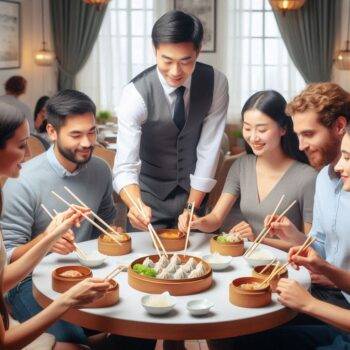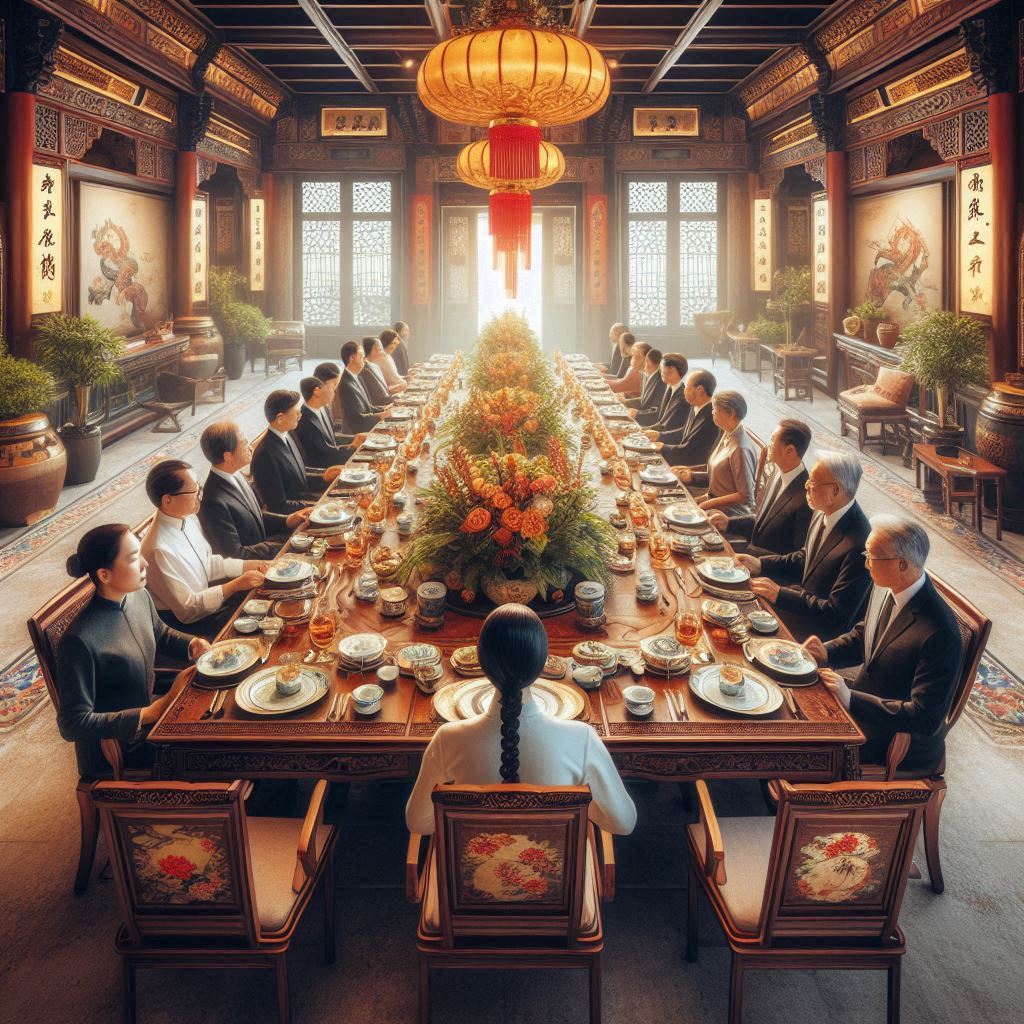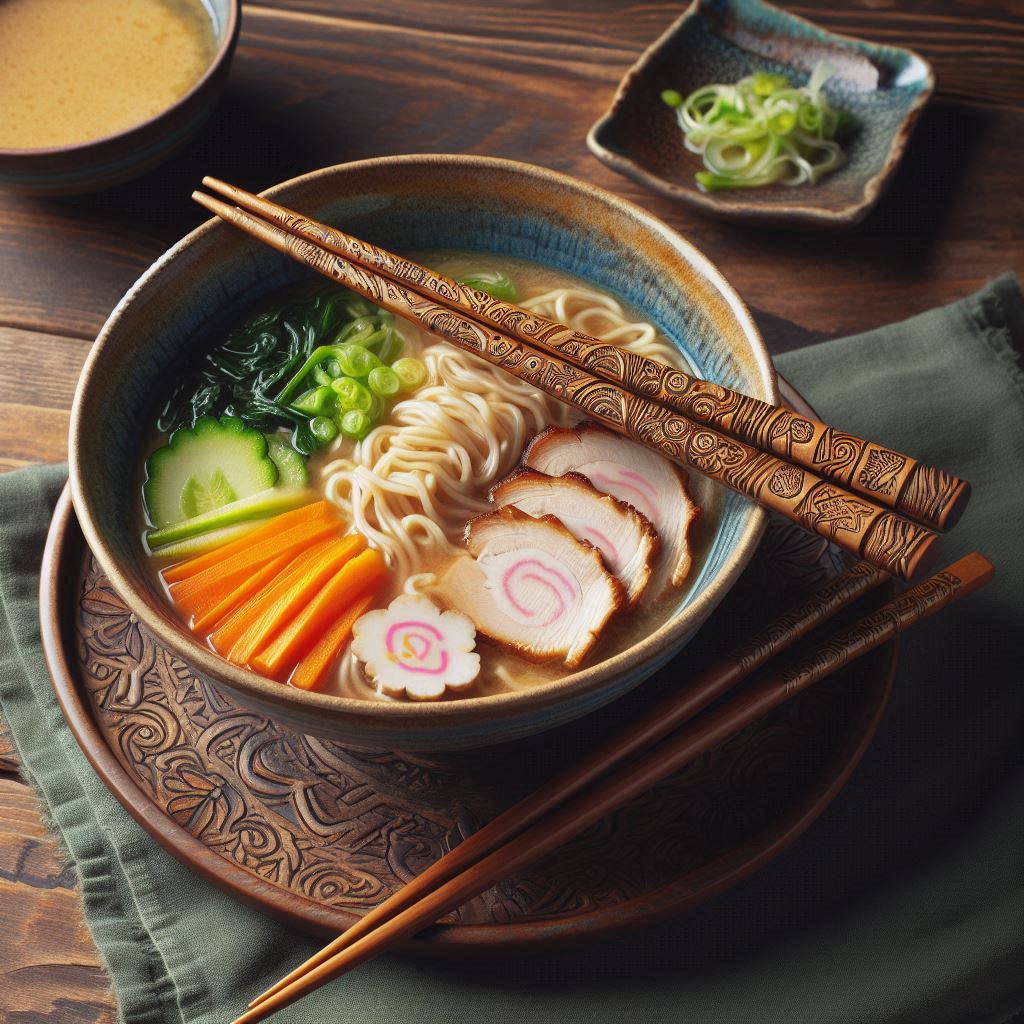
Dining in China is more than just a meal—it’s a cultural experience that fosters relationships, shows respect, and honors tradition.
For expats, understanding Chinese dining etiquette is essential for making a positive impression, whether you’re dining with friends, colleagues, or business associates.
This guide will help you navigate the nuances of Chinese dining culture with confidence and respect.
Why Dining Etiquette Matters in China
In Chinese culture, dining is a social event that reflects values such as respect, hierarchy, and hospitality.
Demonstrating good manners at the table can help you build stronger relationships, avoid misunderstandings, and show appreciation for the host’s efforts.
Whether you’re attending a casual meal or a formal banquet, understanding the customs will enhance your experience and leave a lasting positive impression.
1. Seating Arrangements
Seating arrangements at a Chinese dining table are carefully planned and reflect the importance of hierarchy and respect.

Key Points:
- The host or the most senior person typically sits at the head of the table, with the guest of honor seated directly opposite.
- Other guests are seated based on their status or relationship to the host.
Tips:
- Wait for the host to indicate where you should sit.
- Do not sit down until the host invites everyone to be seated.
Learn More:
2. Table Manners
Proper table manners are essential in Chinese dining culture.
Here are some key aspects to keep in mind:
Chopstick Etiquette

- Do Not Stick Chopsticks Upright: This resembles incense sticks used in funerals and is considered bad luck.
- Avoid Pointing: Never use chopsticks to point at people or objects.
- Sharing Food: Use serving utensils or the opposite end of your chopsticks to take food from shared dishes.
Serving and Eating
- Serve Others First: It’s polite to serve others, especially elders or guests of honor, before serving yourself.
- Try Everything: Sampling all dishes shows appreciation for the host’s hospitality.
- Eat in Moderation: Avoid taking large portions to ensure there’s enough for everyone.
Learn More:
3. Toasting and Drinking
Toasting is an integral part of Chinese dining culture, especially during business meals and celebrations.

Key Points:
- Ganbei (干杯): The Chinese equivalent of “cheers,” meaning “dry cup.” While it’s polite to drink, you don’t always have to finish your glass unless the occasion calls for it.
- Senior First: Allow the most senior person to make the first toast.
- Reciprocal Toasts: Be prepared to reciprocate toasts throughout the meal.
- Respectful Gestures: When clinking glasses, hold your glass slightly lower than the other person’s as a sign of respect.
Learn More:
4. Conversation and Interaction
Engaging in conversation during a meal is encouraged, but there are some cultural nuances to keep in mind.
Do’s:
- Compliment the Food: Praise the dishes and the host’s hospitality.
- Be an Active Listener: Show interest in what others are saying and engage in light, friendly conversation.
Don’ts:
- Avoid Sensitive Topics: Steer clear of controversial subjects like politics or religion.
- Don’t Interrupt: Allow others to finish speaking before responding.
5. Gift-Giving Etiquette
Bringing a small gift for the host is a thoughtful gesture that shows appreciation.
Appropriate Gifts:
- Fruit, tea, or small items from your home country are excellent choices.
- Wrap the gift nicely, as presentation is important.
Gifts to Avoid:
- Clocks: Symbolize death.
- Sharp Objects: Represent cutting off the relationship.
- White or Black Items: Associated with funerals.
Learn More:
6. Ending the Meal
The way you end a meal is just as important as how you begin it.
Key Points:
- Wait for the Host: Do not leave the table until the host signals the end of the meal.
- Thank the Host: Express your gratitude and compliment the meal.
Learn More:
7. Practical Tips for Expats
Adapting to a new culture takes time and effort.
Here are some practical tips to help you navigate Chinese dining etiquette:
- Observe and Adapt: Pay attention to how others behave and follow their lead.
- Learn Basic Mandarin Phrases: Simple phrases like “thank you” (谢谢, xièxiè) and “delicious” (好吃, hǎochī) can go a long way.
- Recommended App: HelloChinese
- Be Patient and Respectful: Mistakes are part of the learning process. If you’re unsure, ask politely or observe others.
- Use Technology: Apps like Pleco can help you translate menus and understand dining terms.
8. Regional and Generational Differences
China is a vast country with diverse regional and generational dining customs.
Here are some examples:
- Regional Variations: In northern China, wheat-based dishes like dumplings are common, while southern China emphasizes rice and seafood.
- Generational Differences: Younger generations in urban areas may be more relaxed about traditional etiquette, while older generations may adhere strictly to customs.
Learn More:
9. Handling Cultural Misunderstandings
If you accidentally break dining etiquette, don’t panic.
Most hosts will understand that you’re unfamiliar with the customs.
Tips for Recovery:
- Apologize Politely: A simple “sorry” (对不起, duìbuqǐ) can go a long way.
- Show Willingness to Learn: Express your interest in understanding the culture better.
- Stay Positive: Laugh off minor mistakes and focus on enjoying the experience.
Conclusion
Dining etiquette in China is an integral part of the culture and plays a significant role in social and business interactions.
By understanding and respecting these customs, expats can build stronger relationships, show respect, and enjoy a more immersive experience.
Remember to observe, adapt, and show appreciation for the hospitality extended to you.
With time and practice, you’ll feel more confident navigating Chinese dining culture. Happy dining!


